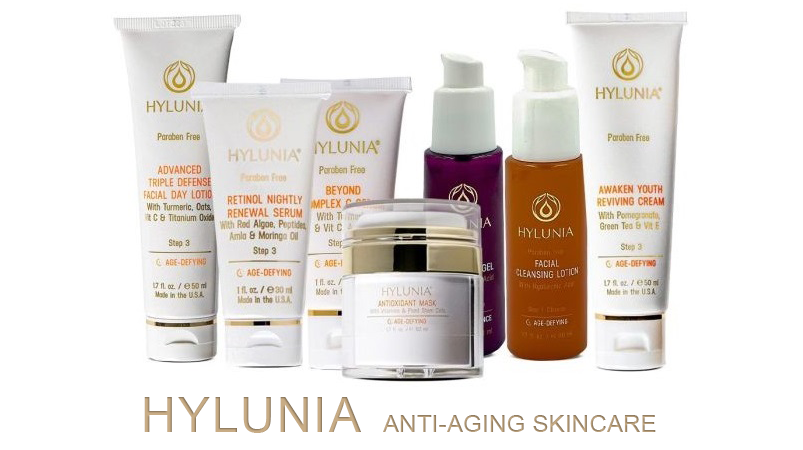
Everyone’s talking about vitamin C serums, and if you’ve been curious about adding one to your skincare routine, you’re not alone. Known for its brightening and anti-aging properties, vitamin C serum seems to be the miracle in a bottle we’ve all been waiting for. But is it really worth the hype? Here we break down what vitamin C can actually do for aging skin, why it’s become a staple in skincare routines, and how to use it effectively for results that make you wonder why you didn’t start sooner.
Contents
What Exactly Does Vitamin C Do for Aging Skin?
Vitamin C is an antioxidant, which means it helps protect your skin from harmful environmental factors like pollution and UV rays. But its benefits go beyond just protection—it can brighten, smooth, and even stimulate collagen, helping to fight some of the most common signs of aging.
How Vitamin C Fights Wrinkles and Fine Lines
As we age, collagen production naturally decreases, leading to wrinkles and a loss of firmness. Vitamin C helps stimulate collagen production, which keeps your skin firm and resilient. By encouraging the skin to produce more collagen, vitamin C can help reduce fine lines and make your skin look smoother and more youthful.
Evening Out Skin Tone
If you’re dealing with age spots or pigmentation, vitamin C can help brighten dark spots. It works by inhibiting melanin production, which is the substance responsible for skin pigmentation. Over time, regular use of a vitamin C serum can help create a more even skin tone, fading those spots that can make skin look older than it is.
Why Vitamin C is a Powerful Antioxidant
Free radicals—unstable molecules generated by UV rays, pollution, and even stress—damage skin cells, accelerating the aging process. Vitamin C neutralizes these free radicals, preventing them from causing further harm. Think of it as your skin’s bodyguard, keeping environmental damage at bay.
Protecting Against UV Damage
While vitamin C isn’t a sunscreen, it does offer a layer of protection against UV damage. By neutralizing free radicals, it reduces the damage done by sun exposure, helping to prevent dark spots, wrinkles, and sagging. When paired with sunscreen, vitamin C becomes even more effective at shielding your skin from the elements.
Reducing Inflammation and Redness
Vitamin C is also known for its anti-inflammatory properties, which can help calm the skin. If you have sensitive or reactive skin, vitamin C can soothe irritation and reduce redness over time, giving your complexion a more uniform, healthy appearance.
How to Choose the Right Vitamin C Serum
Not all vitamin C serums are created equal. The form of vitamin C, concentration, and additional ingredients can all make a difference in how effective it is. Here’s what to look for:
- L-Ascorbic Acid: This is the most potent form of vitamin C. Look for serums with L-ascorbic acid if you want maximum results.
- Concentration of 10-20%: For aging skin, a concentration of 10-20% is generally ideal. Anything less might be too mild, and anything more can cause irritation.
- Additional Antioxidants: Ingredients like vitamin E and ferulic acid enhance vitamin C’s stability and effectiveness, making the serum even more powerful.
Packaging Matters
Vitamin C is sensitive to light and air, which can cause it to lose its potency. Look for serums in dark, airtight bottles, and store them in a cool, dark place to keep them effective.
How to Use Vitamin C Serum for Best Results
Vitamin C is most effective when applied in the morning, as it provides an extra layer of protection against environmental stressors. But to avoid irritation and get the most out of your serum, follow these simple steps:
Step 1: Cleanse and Tone
Start with a clean face. Apply a gentle cleanser and a toner to prep your skin for the serum.
Step 2: Apply a Few Drops of Vitamin C Serum
Use a few drops of serum and gently pat it into your skin. A little goes a long way, so don’t overdo it—your skin can only absorb so much at once.
Step 3: Wait for Absorption
Give your skin a minute to absorb the serum. This will allow it to sink in before you move on to other products.
Step 4: Follow with Moisturizer and Sunscreen
Finish with a moisturizer to lock in hydration and, of course, sunscreen for added protection. The combination of vitamin C and sunscreen is incredibly effective in preventing signs of aging.
Potential Side Effects and How to Avoid Them
For most people, vitamin C is safe and well-tolerated. However, it can cause irritation, especially if you’re new to using active ingredients. Here’s how to minimize any potential side effects:
- Start Slowly: If you’re new to vitamin C, start by using it a few times a week to let your skin adjust.
- Patch Test: Try the serum on a small patch of skin to ensure you don’t react before applying it to your entire face.
- Avoid Mixing with Certain Ingredients: Vitamin C can be unstable when mixed with certain ingredients like retinol or niacinamide, so it’s best to use it separately or consult with your skincare provider.
Signs of Irritation to Watch Out For
Redness, itching, or increased sensitivity are signs your skin might not be tolerating the serum. If this happens, reduce the frequency of use or switch to a lower concentration.
Is Vitamin C Serum Worth the Investment?
So, is it worth all the hype? For those looking to reduce signs of aging, improve skin tone, and protect against future damage, the answer is yes. Vitamin C offers a range of benefits that make it a valuable addition to an anti-aging routine. It’s one of the few ingredients that delivers visible results, often within weeks of consistent use. While it’s not a miracle cure, vitamin C serum can be a powerhouse in keeping skin radiant and youthful.
Adding a quality vitamin C serum to your morning skincare routine can make a noticeable difference in the look and feel of your skin. Whether you’re looking to smooth fine lines, brighten dark spots, or protect against environmental stress, vitamin C has you covered. A little serum each morning could be the simple step that helps keep your skin glowing, protected, and—let’s be honest—a little more fabulous.

